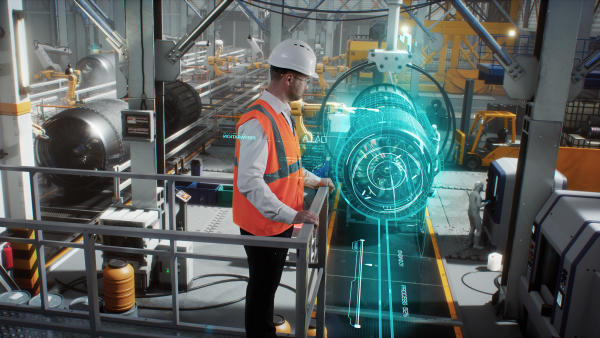The rapid integration of Artificial Intelligence (AI) in the aerospace industry signifies a transformative shift, fundamentally altering how organisations approach manufacturing, safety, customer service, and system management1. AI’s ability to solve complex problems swiftly, facilitate effective decision-making, and eliminate human errors is transforming the sector.
For aircraft OEMs, this evolution extends beyond automating physical manufacturing processes. The scope of AI also empowers engineers and sourcing teams to make informed decisions that reduce embedded carbon. By thinking outside the traditional frameworks, OEMs can leverage AI not just for tangible outcomes but for intangible benefits that strike a balance between carbon reduction and performance optimisation.
Alternative applications of AI
The aerospace industry already employs AI across various critical functions, including air traffic management, pilot training, and fuel optimisation. Moreover, the adoption of AI in aerospace aims to automate manual processes and eliminate human errors, utilising machine learning and computer vision to extract insights from data to prioritise sustainability in operations.
AI can further be applied within the manufacturing process of aircraft components with a Life Cycle Assessment (LCA).Unipart Consultancy has partnered with Riskoa to conduct LCAs using Riskoa’s EmVide SaaS platform.

The recommendations drawn from this AI-enabled LCA analysis can identify where alternative materials can be used and design enhancements can be made to minimise material wastage and improve energy efficiency during the manufacturing phase.
The benefit of these recommendations is the potential for significant cost reductions. Reducing energy consumption and material waste directly translates to lower operational costs.
The LCA quantifies the embedded carbon in each product, allowing us to establish a clear carbon reference point for every item assessed. EmVide facilitates dynamic and accurate assessments by utilising ERP Bill of Materials (BoM), process routing data, or observed process maps to predict likely processes and assess carbon impact. It provides a reliable basis for validating products, processes, and resources, creating product-specific emissions factors and LCA reports.
Using AI to conduct an LCA can accelerate the evaluation of the environmental impact of a product’s components and production phase processes. This focuses on climate change management and includes other Life Cycle Impact Assessment (LCIA) metrics like ozone depletion, resource depletion, and water usage for a comprehensive environmental profile.
Your journey to supply chain sustainability
If you’re looking for more support with your supply chain’s sustainability journey, get in touch with us at Unipart Consultancy. Contact us here.
References